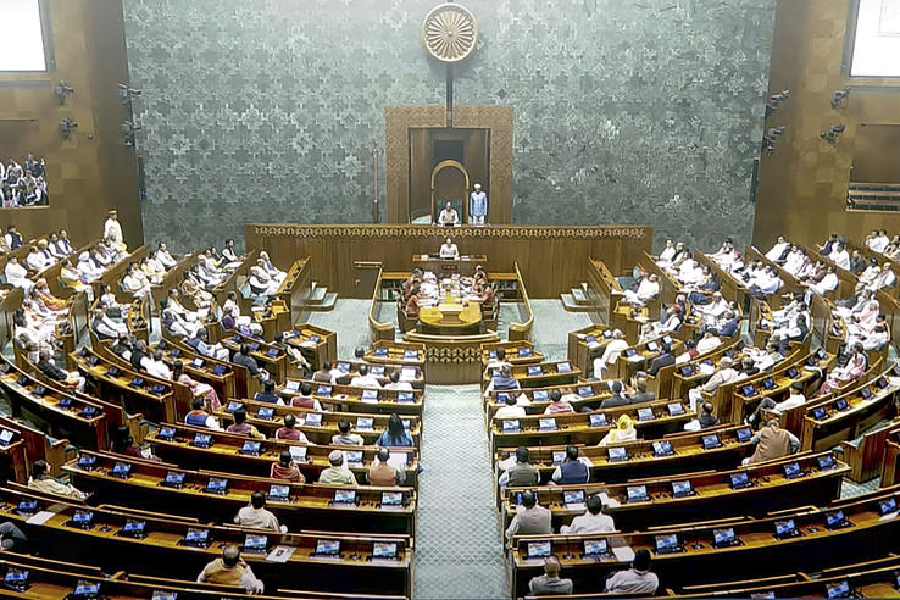The government on Monday pushed ahead with the business listed in the Rajya Sabha despite continuing Opposition protests over a range of issues, including the weekend arrest of Shiv Sena MP Sanjay Raut by the Enforcement Directorate.
After a quick adjournment in the morning, Question Hour was taken up on schedule but wrapped up midway as the Opposition continued with its sloganeering.
In the afternoon, the government rushed through its legislative business, getting two bills passed amid the
din: the Weapons of Mass Destruction and their Delivery Systems (Prohibition of Unlawful Activities) Amendment Bill, and the Indian Antarctic Bill.
Through the acrimonious proceedings, the government kept reminding the Opposition that it had agreed to a discussion on price rise in both Houses. The Opposition’s counter was that none of the issues it wanted discussed were being allowed to be raised in the House.
Trinamul member Derek O’Brien said: “In the last six years, not even one issue under Rule 267 — which the Opposition has raised — has been accepted by this government. Not even one. Today, we are raising (the) ED. Today, we are raising the issue of our colleague, Shri Sajay Raut…. There is a rape in Gujarat….”
Rule 267 allows the day’s business to be suspended to discuss an issue raised by a member.
“Any member, may, with the consent of the Chairman, move that any rule may be suspended in its application to a motion related to the business listed before the Council of that day and if the motion is carried, the rule in question shall be suspended for the time being,” it says.
What has upset the Opposition the most is that not even any reference is being made to their notices submitted under Rule 267.
Leader of the Opposition Mallikarjun Kharge said: “You have not even made a mention of the notices that we have submitted on happenings in Jharkhand, Madhya Pradesh and Assam.”
While the Opposition members know that not every notice under Rule 267 can be entertained, their contention is that the Chair should at least make a mention of the notices received before rejecting them so that they become part of parliamentary record.











